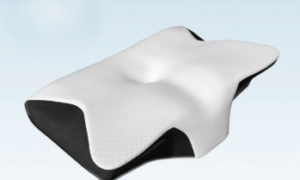Introduction
We often think of stress as a purely mental or emotional issue, but it can also manifest in physical ways, particularly back pain. The connection between stress and back pain involves physiological and psychological factors. This article will explore how emotional stress can cause back discomfort and offer strategies for managing stress-related pain. Additionally, we’ll touch upon the advancements in back pain treatment for those with persistent pain.
Muscle Tension and Spasms
Stress can cause your body to create excess stress hormones, such as cortisol and adrenaline. These hormones prepare your body for a “fight or flight” response, causing your muscles to tense up. Prolonged stress can lead to persistent muscle tension, particularly in the back and neck, resulting in discomfort and pain.
Postural Changes
When we’re stressed, we may unconsciously adopt poor posture, such as hunching our shoulders or slouching. Over time, these postural changes can strain the muscles and ligaments in your back, causing pain and discomfort.
Reduced Pain Tolerance
Chronic stress can lower your body’s pain threshold, making you more sensitive to discomfort. This heightened sensitivity can cause you to perceive back pain more acutely than you would under less stressful circumstances.
Sleep Disturbances
Stress often disrupts our sleep patterns, leading to insomnia or restless sleep. Poor quality sleep can, in turn, exacerbate back pain as our bodies rely on restorative sleep to repair and rejuvenate muscles and tissues.
Unhealthy Coping Mechanisms
Under stress, people may turn to unhealthy coping mechanisms, such as overeating, smoking, or alcohol consumption. These behaviors can lead to weight gain, inflammation, and muscle imbalances, all of which can contribute to back pain.
Managing Stress-Related Back Pain
Addressing the root cause of your stress is essential for managing stress-related back pain. Some effective strategies for reducing stress and relieving back pain include:
Physical Activity
Including regular exercise can help reduce stress by releasing endorphins, the body’s natural painkillers and mood elevators. Choose low-impact activities like yoga, swimming, or walking, which can help alleviate back pain and promote relaxation
Deep Breathing andMeditation
Practicing deep breathing exercises and meditation can help lower stress levels and promote relaxation. These techniques can help release muscle tension and reduce back pain.
Massage Therapy
Massage therapy can help relieve muscle tension, reduce stress, and promote relaxation. Regular massage sessions may help alleviate stress-related back pain.
Cognitive-Behavioral Therapy (CBT)
Cognitive Behavioral Therapy is form of therapy that helps individuals change negative thought patterns and behaviors. By addressing the psychological aspects of stress, CBT can help reduce stress levels and improve coping mechanisms, potentially decreasing back pain.
Prioritize Self-Care
Incorporating self-care activities into your daily routine, such as reading, taking a bath, or spending time in nature, can help you manage stress and reduce its impact on your body.
Continued Back Pain: Emerging Treatments
If you continue to experience severe or persistent back pain despite addressing your stress levels, it’s essential to seek medical advice and treatment. There could be a different underlying cause that is causing your pain. While traditional treatment options like physical therapy and pain medications are available, there are also innovative solutions being researched and developed.
One such example is DiscGenics, a company focused on regenerative therapies for disc-related disorders. Under the guidance of CEO Flagg Flanagan and COO Bob Wynalek, DiscGenics is developing a promising treatment called Injectable Disc Cell Therapy (IDCT), which uses cells derived from adult human disc tissue to help regenerate and repair damaged intervertebral discs. This cutting-edge therapy could potentially provide relief to millions of people suffering from debilitating back pain.
Conclusion
Stress can manifest as back pain in various ways, from muscle tension to poor posture and unhealthy coping mechanisms. By understanding the connection between emotional stress and back pain, you can take steps to manage your stress levels and alleviate discomfort. Incorporating stress-reduction strategies like exercise, meditation, and self-care can help improve both your mental and physical well-being.



































